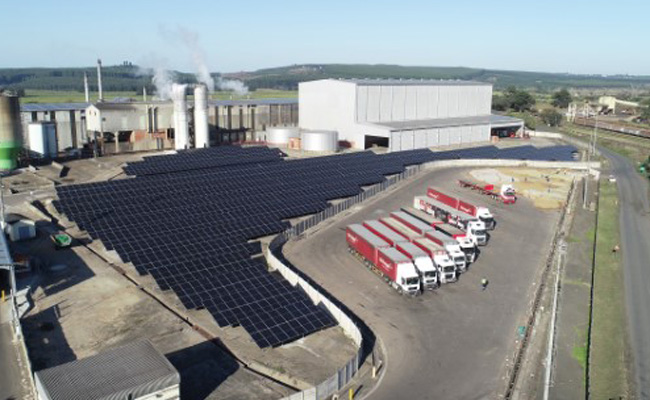If you want a real sense of how Joburg is toeing the edge of the abyss, look no further than the “sweeping arrangement” it has with its municipal accounts.
Sounds innocuous enough, right? Looks innocuous too.
The way it works is that on any given day, income from the city’s entities – Joburg Water, City Power, Pikitup and the like – is “swept” into a centralised city account. The idea is that you can earn more interest on a larger sum than you would on smaller amounts in individual accounts. The money is supposed to be returned – with interest.
It seems sensible enough – only, it doesn’t always seem to work that way; the municipal treasury can restrict the return of funds, not paying back in full. Which, one imagines, is how it came to be that the city owes Joburg Water R2.81bn for FY2024.
See, it looks to me like sleight of financial hand: the sweeping account sometimes sucks up cash from revenue-generating entities and then uses it to cross-subsidise a nonperforming city, as News24’s Alex Patrick reported in July. Think of it as a Hoover on steroids – or a leech on the long-suffering ratepayer.
Joburg CFO Tebogo Moraka admitted as much to Patrick, saying money is redirected – but only to ensure nonperforming entities’ payments are up to date. To that extent, entities bringing in cash are “carrying the nonperforming” entities; if the city didn’t divert some of these funds, “probably half the [city’s] entities wouldn’t make it”.
He’s not wrong. Have a look at the most recent financial statements for the city’s 13 municipal entities and a full half are in deficit. City Power, the worst offender, was R2.84bn in the red by the end of the 2023/24 financial year.
The upshot would seem to be twofold. First, the system, used in this way, subsidises inefficiency. Joburg has a glut of municipal-owned entities – a country mile more than any other city in the country. Most could – and should – be collapsed into existing city departments to prevent duplication of function, streamline governance and save on costs (more on that here). Instead, we’re drip-feeding their incompetence.
Second, you’re punishing performance – taking cash from revenue-generating entities that could reinvest those funds in their own operations to, you know, deliver services.
Mixed messages
That’s what seems to have happened with Joburg Water. As has been widely reported of late, it’s had R4bn go “missing” – apparently hoovered into the sweeping account, never to be seen again.
The city swears there’s nothing amiss. Spokesperson Nthatisi Modingoane told Patrick the R4bn is just an estimate of funds required by Joburg Water over time. Mayor Dada Morero, meanwhile, said the money was not “missing”; it had to be used “for the entire city of Joburg”.
But this comes as the utility loses a full third of its water to leaks, 20% of its assets will reach end of life within 10 years, it faces an infrastructure backlog of R27bn, and it requires R32.5bn for a 10-year turnaround plan.
To give you an indication of what R4bn could do, consider that the city should be spending R1.09bn a year on replacing 186km of pipeline. Instead, its target this year is 86km (and it’s apparently only replaced a princely 3km or so so far). So much for those water losses.
Or consider the temperamental Commando water distribution system. It supplies suburbs that are perennially out of water – Brixton, Melville, Auckland Park and Coronationville, among others.
According to the City of Joburg’s presentation to parliament’s water and sanitation portfolio committee meeting last week, medium- to long-term interventions to bolster the Commando system (think new bulk infrastructure, repairing two existing reservoirs and building a new reservoir and water tower) would collectively cost R654m. Now imagine that kind of infrastructure investment six times over.
The ‘missing’ billions
So it’s no surprise the “missing” R4bn was front and centre at the rump-numbing portfolio committee meeting on Joburg’s water crisis.
First, because key projects have ground to a halt as contractors have gone unpaid. “This is because Joburg Water doesn’t have the money to pay them because part of its budget has been swept from its account by the city and not put back,” a slide presentation by water director-general Sean Phillips noted.
Second, because the sweeping of the account relates to the one critical can that keeps getting kicked down the road: when will Joburg Water’s revenue be ringfenced for Joburg Water functions?
Getting answers out of His Lordship Morero, however, all but gave committee chair Leon Basson an aneurysm.
After ignoring the question and obfuscating, Morero, who’s taken to referring to himself in the third person, told Basson: “We suggest that what we’re saying probably is not helping you at all … there’s not any answer you could extract beyond what we’ve given you.”
Here’s what Morero did – eventually, and alongside much gumph – tell us:
On the question on the “missing” R4bn: “The answer is the money comes into the central account of the city and is used for all intents and purposes of what the city has to account to.”
As for unpaid contractors: come month-end, the city pays salaries to its bloated staff complement, followed by medical aid, then bulk purchases (to Eskom and Rand Water). Whatever is left over goes to contractors. Cold comfort for unpaid workers.
Miraculously, Morero recognises that expenditure dwarfs income. “It’s something that we are dealing with so that we can align our income to our expenditure and in that way be able to once and for all manage the environment of payment of contractors,” he said sagely.
Financial management 101, really.
As for ringfencing, don’t hold your breath. While Joburg Water CEO Ntshavheni Mukwevho offered something about “modalities”, Morero waxed on about how “engagements are continuing” with National Treasury for “percentages” that will be ringfenced.
There’s a chilling thought: only a portion of Joburg Water’s revenue will be ringfenced for Joburg Water’s own use.
But it gets worse. Morero also warned that “ringfencing will be implemented in a pace and scale that the city can afford”.
Sadly, the city can afford neither pace nor scale – not while it remains hellbent on keeping its failing entities afloat and managing its money with the financial acumen of a preschooler. Which is bad news for Joburg Water – and for the long-suffering residents of the city.
Sign up to Currency’s weekly newsletters to receive your own bulletin of weekday news and weekend treats. Register here.












Hi Shirley
Great article. How about an article on how COJ Revenue/ billing system is stealing from the residents of COJ. COJ charges you interest on Zero balance on your municipal account and then convenienly bill you for pre-termination notice charges (notices which you never receive anyway). Even the billing systems are corrupt!